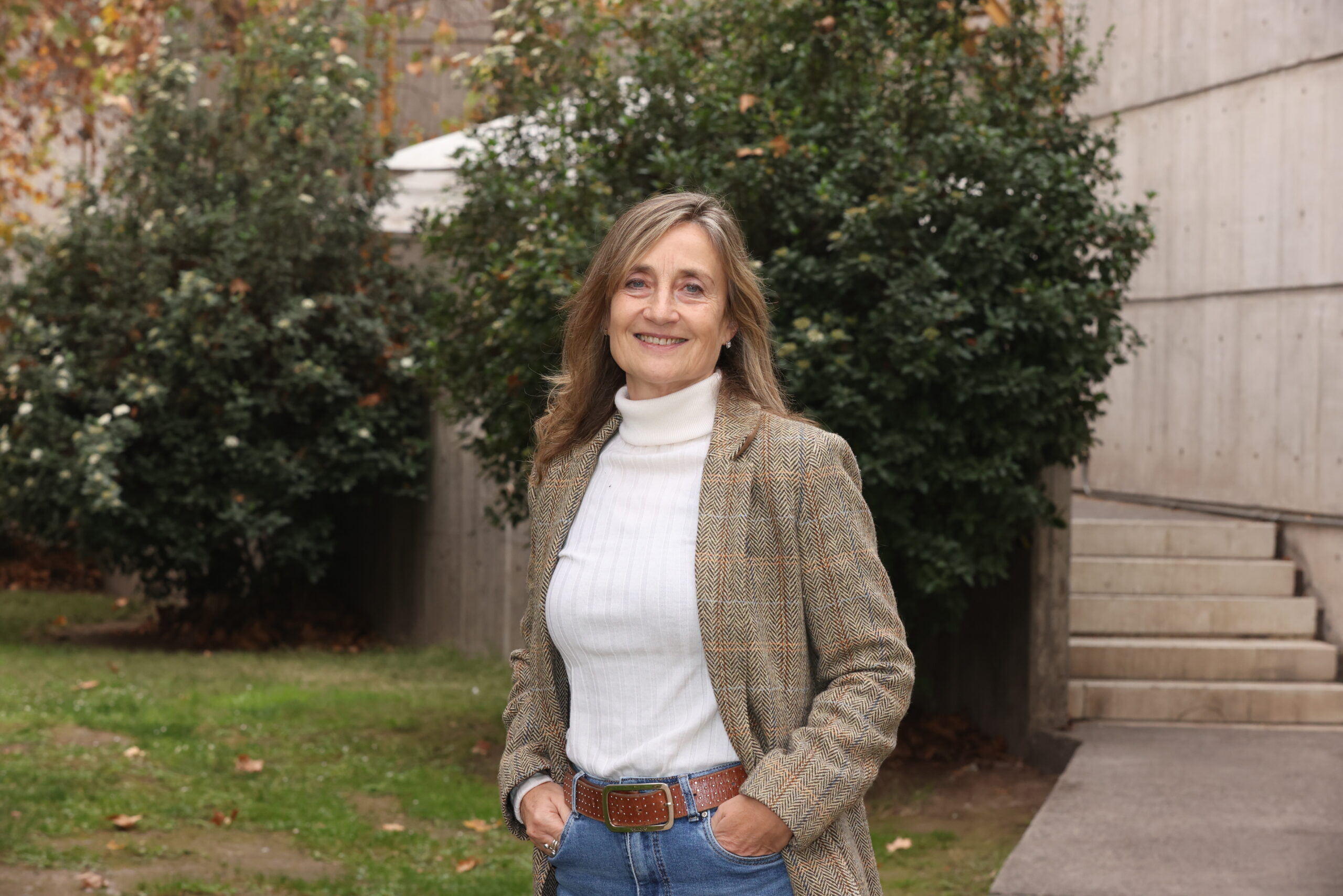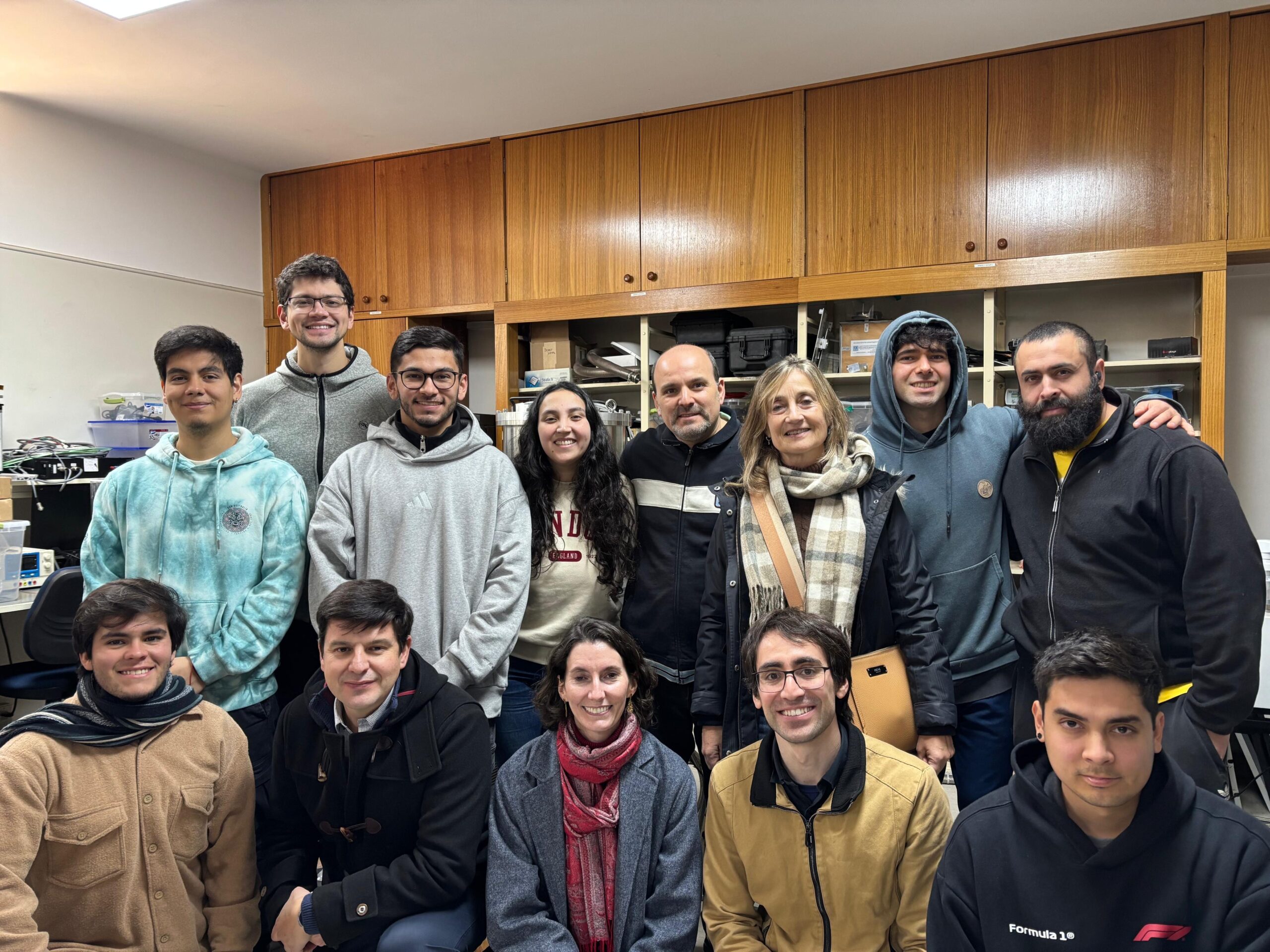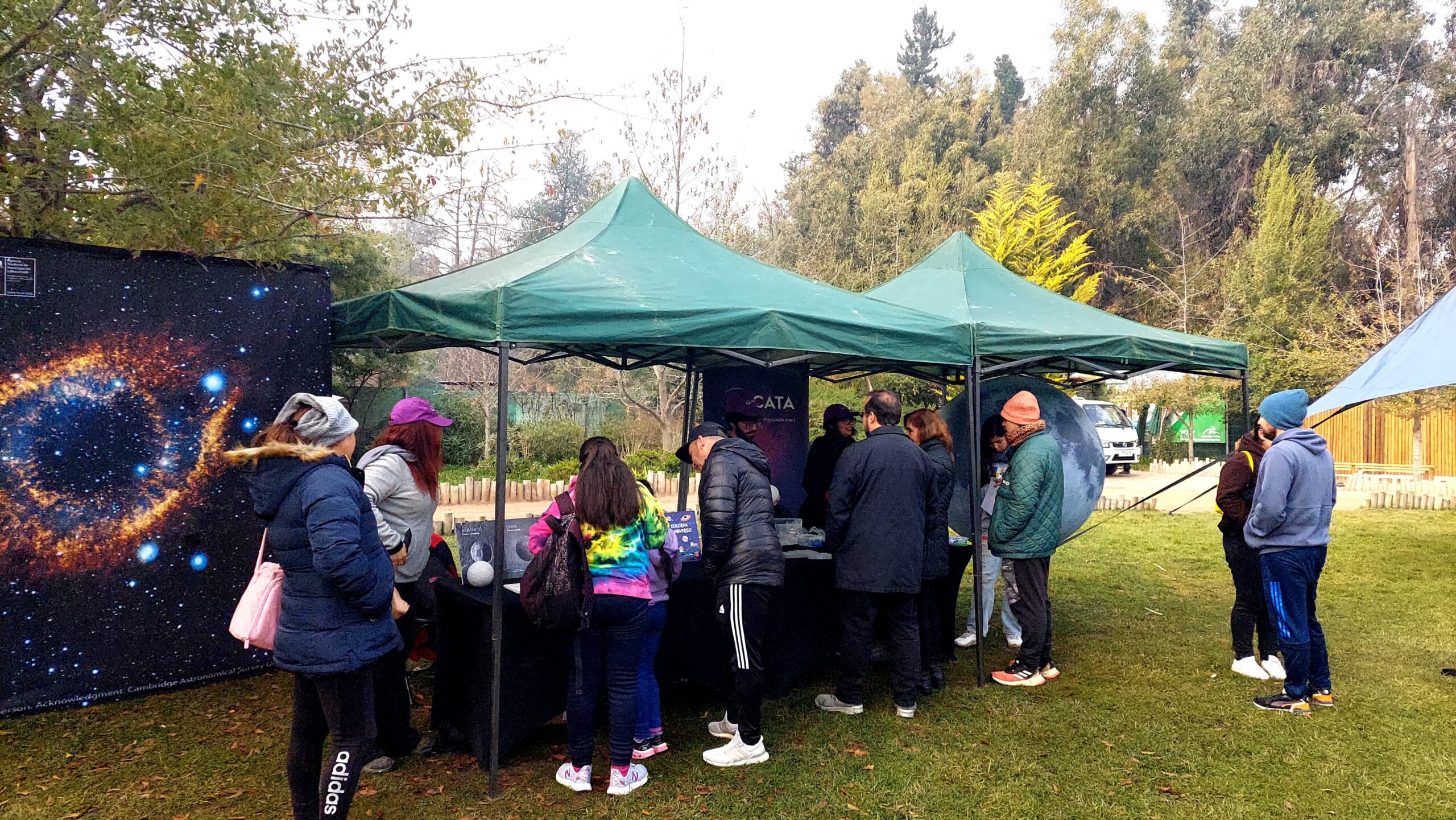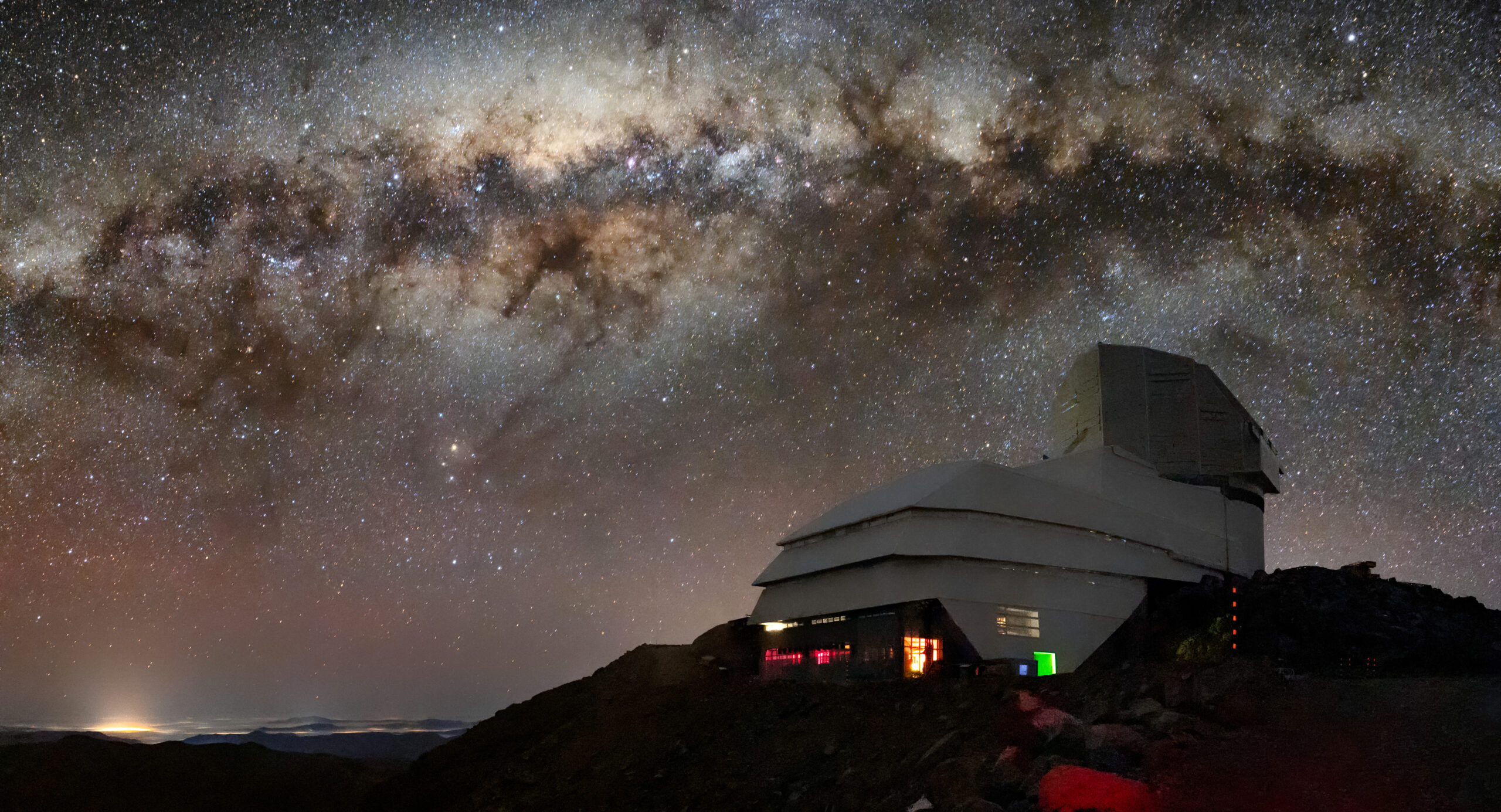
CATA research associate recognized for her research career
Manuela Zoccali, researcher associated with the Center for Astrophysics and Related Technologies (CATA), was recognized at the anniversary of the Research Department of the Catholic University, where more than 20 academics were recognized in scientific milestones. The astronomer was distinguished in the category “Research Career for continued leadership in Fondecyt projects 2015 - 2025”.
The Associate Researcher at the Center for Astrophysics and Related Technologies (CATA), Manuela Zoccali, was recognized by the academic institution as part of the commemoration of the tenth anniversary of the Directorate of Research of the PUC, in the category of “Research Career for continued leadership in Regular Fondecyt projects between 2015 and 2025”.
This fund is provided by the National Agency for Research and Development (ANID) and represents one of the most competitive and prestigious instruments for the development of basic research in Chile, with award rates that vary between 25% and 35%, depending on the year and discipline.
Manuela Zoccali, also an academic at the Catholic University, has more than 20 years of experience in astronomical research and holds a PhD in Astronomy from the University of Padova (Italy). Within our Center she is dedicated to the study of the Local Universe investigating the stars of the central region of the Milky Way, in order to elucidate the process of formation of spiral galaxies, focusing on the observation and analysis of the oldest populations of stars. She has also been director of the Millennium Institute of Astrophysics (MAS).
The astronomer has mentioned the support of several institutions in her research, among these, CATA has played a key role in her development, providing support in infrastructure and access to advanced computational resources for the training of new researchers. “CATA has been instrumental in boosting the computational infrastructure, which has allowed my students to access high-level technology,” she said.
On the other hand, Manuela highlighted the increase in the number of people interested in research in recent times and valued the work done in the field: “In the area of astrophysics, the Chilean community has grown enormously in the last 15 years. There are currently many academics doing very high level research throughout the country. For this reason, the competition for funding is becoming tough, and it is easy to be left out even when world-class research is being done,” she commented.
Finally, the researcher commented on her current objectives and the satisfaction of receiving this recognition. “I can see something that we researchers don’t normally see, that I have worked well during these years. In general, I am not worried about competing. My focus is on doing my work to the best of my ability, that my students are trained properly, and finding the space to think about the answers to my questions. These awards are like a slow walk on the beach, they seem simple and straightforward, but they bring joy to our lives,” she concluded.
Recent news
-
 Publicado el: 09/07/2025Patricia Tissera is recognized as full professor by the Pontificia Universidad Católica de Chile
Publicado el: 09/07/2025Patricia Tissera is recognized as full professor by the Pontificia Universidad Católica de Chile -
 Publicado el: 04/07/2025CATA researchers among the best in Chile according to international ranking Research.com
Publicado el: 04/07/2025CATA researchers among the best in Chile according to international ranking Research.com -
 Publicado el: 30/06/2025CATA Director strengthens ties in her second institutional tour
Publicado el: 30/06/2025CATA Director strengthens ties in her second institutional tour -
 Publicado el: 30/06/2025CATA celebrated Asteroid Day 2025 at the Pueblito de Las Vizcachas Park
Publicado el: 30/06/2025CATA celebrated Asteroid Day 2025 at the Pueblito de Las Vizcachas Park -
 Publicado el: 26/06/2025Vera C. Rubin: the telescope that watches the sky and anticipates the future of astronomy
Publicado el: 26/06/2025Vera C. Rubin: the telescope that watches the sky and anticipates the future of astronomy
Categories list
- Acknowledgments 20
- Astrobiology 5
- AstroCluster 1
- Black holes 13
- Corporativo 49
- Cosmology 4
- Descubrimientos 19
- Disclosure 46
- Exoplanets 13
- Extension 4
- Galaxies 17
- Galaxies formation 2
- Inter y Transdisciplina 2
- Local Universe 13
- Publications 5
- Sin categorizar 31
- Solar System 11
- Stellar formation 6
- Technology 9
- Technology Transfer 12



